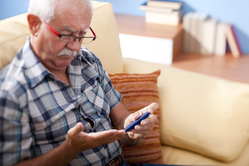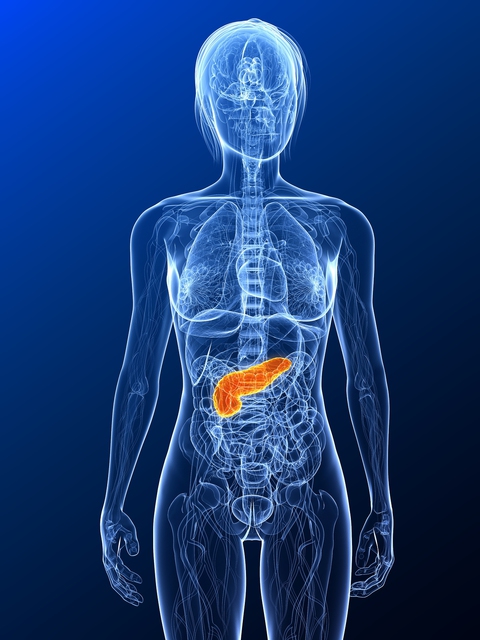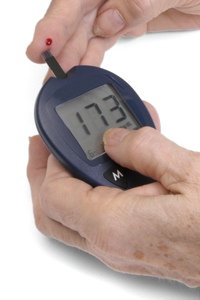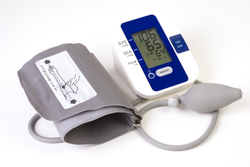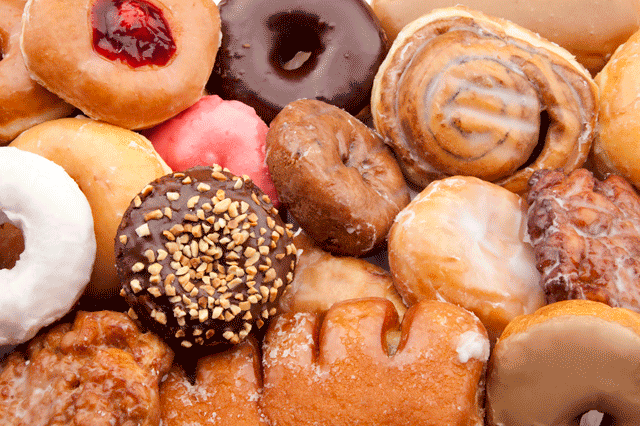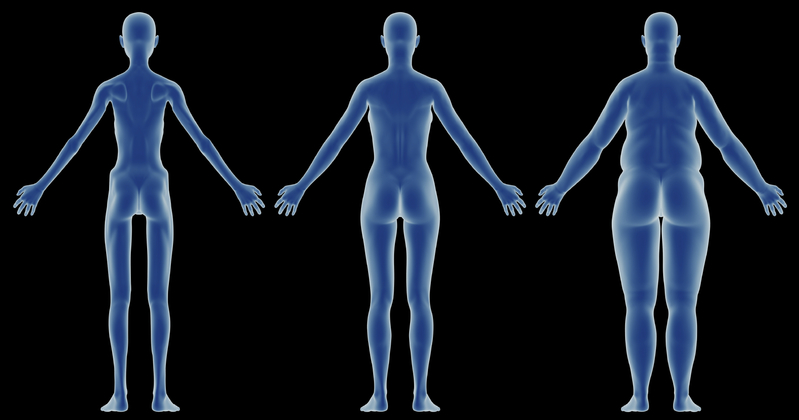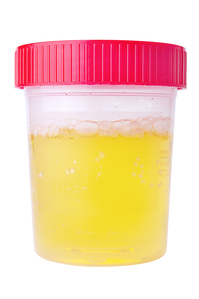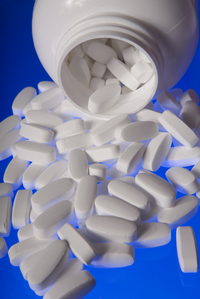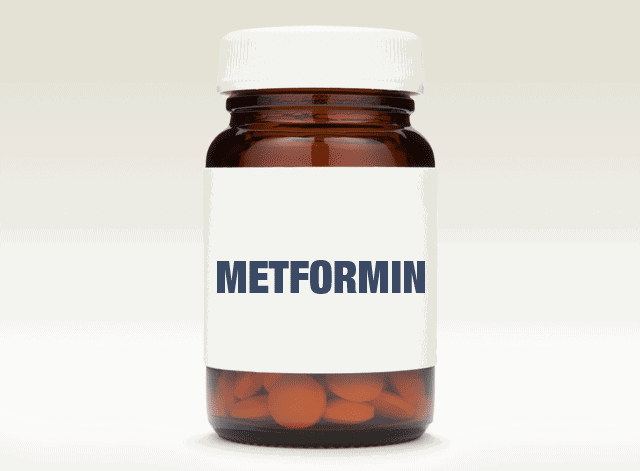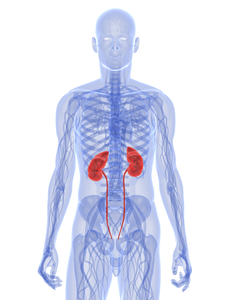Diabetes and Kidney Failure
Diabetes, or high blood sugar, is the number one cause of kidney failure in the U.S. If you have diabetes and kidney problems, there are steps you can take to keep your kidneys working as long as possible. The goal is to help your kidneys live as long as you do.
Two Types of Diabetes
Your body needs insulin to use sugar as energy. Having diabetes means not having enough insulin or not being able to use it:
- In type 1 diabetes, the body's immune system attacks and kills the cells in the pancreas that make insulin, so there is not enough. Injections of insulin are needed to live.
- Type 2 diabetes occurs when the body's cells can't use insulin the way they should. Increased body fat can make it hard for the body to use insulin. Weight loss and exercise can help. Many people with type 2 can take pills to treat it, but most will need injections of insulin as time goes on.
Both types of diabetes harm blood vessels all over the body. These include large blood vessels in the heart, brain, and limbs—and small blood vessels in the eyes and kidneys.
Test Your Sugar and Know How it Reacts to What You Eat
The good news is, only about one in four people with diabetes ever has kidney problems. And, if you do have kidney problems, you can be treated.
If you have diabetes, good blood sugar control can help protect your kidneys—and the rest of you. Knowing what your blood sugar is and how it reacts to what you do and what you eat is the first step to keeping it in control. With test strips and a glucometer, you can check your blood sugar daily and track the results. The VA provides these for you at no charge. Your care team will tell you what blood sugar targets to aim for.
A test called hemoglobin A1c can check your 3-month blood sugar average. It can help you see if you are on the right track for blood sugar control.
Know Your Blood Pressure and How it Reacts
Having diabetes and high blood pressure at the same time is a "double whammy" for the kidneys. Both damage the blood vessels and the tiny filters inside the kidneys.
Have your blood pressure checked—or check it yourself with a home blood pressure cuff. You can get a home blood pressure cuff from the VA. Ask your care team for one. If your blood pressure is high, talk with your care team about treatment options to get it under control.
To learn more about blood pressure and your kidneys, visit How to Slow Kidney Disease: When You Have High Blood Pressure.
Limit Sweets and Starchy Foods
Staying in the target range your care team gives you for blood sugar can help protect your kidneys. Sweets and starchy foods can raise your blood sugar. These include:
- Candy
- Ice cream
- Cakes, pies, doughnuts, cookies
- Bread, bagels, muffins, crackers
- Pasta, rice, potatoes
- Cornbread, corn chips
Eating less of these foods can help you stay in the target range. This can be a hard change to make! Take small steps. Try changing one thing at a time.
Eat Lots of Vegetables and Get Exercise
Eating right and staying active can help you stay in your target range. These things are in your control. No one else can eat or exercise for you.
Based on your kidney function, you may need to limit foods that are high in potassium—like coffee, milk, bananas, orange juice, tomatoes, and potatoes. Talk to a VA dietitian about the best food choices for you.
Visit MOVE!®, a VA program to help you get started with exercise and weight management.
Find a Healthy Weight for You
In some cases, people with type 2 diabetes who lose weight can stop taking diabetes medicines. Losing weight, if you are overweight, can also help lower your blood pressure so you may not need as many blood pressure pills. Visit MOVE!®, a VA program to help you make a weight loss plan.
Get a Urine Test Once a Year
Protein in your urine is an early sign of kidney problems. If you have diabetes, get your eyes and your urine checked each year. Ask your health care team to check your urine for protein. A test for albuminuria can find kidney disease.
If you have protein in your urine, certain blood pressure pills can help protect your kidneys, even if your blood pressure is not high. These pills are in the ACE-inhibitor or ARB class. ACE-inhibitors can cause a dry cough. If this is a problem for you, your doctor can switch you to an ARB instead. To learn more about protein in your urine, visit the Laboratory.
Treat High Blood Sugar
If you have type 2 diabetes, your doctor may prescribe medicines to lower your blood sugar. These only work if you take them. Talk to your care team if you need help to think of a way to remind yourself to take your medicines.
If you need insulin, knowing how to use it can help you stay in your target range. Tell your care team that you would like to learn more about how to manage your blood sugar.
To learn more about how to take medicines the right way, visit the Pharmacy.
Some Diabetes Medicines Are Not Safe if You Have Kidney Disease
Metformin is NOT SAFE for you if your kidney disease is severe or if you have heart failure. Metformin can have many names. Look for the generic name on your pill bottle or ask your pharmacist if what you are taking is a biguanide.
If the answer is yes, talk to your doctor about when to switch to a medicine that is safer for people with kidney disease.
Talk to your doctor before you start or stop taking any prescribed drug.
Kidney Disease Can Change Your Diabetes Control
Kidneys that don’t work well can change your diabetes control. Diabetes pills and insulin can last longer in your bloodstream when your kidneys don’t work well. This can cause more low blood sugar. Stay in close touch with your health care team. They can help you manage your diabetes.

You've reached the end of this topic:
Next Topic: How to Slow Kidney Disease:
When You Have High Blood Pressure
How to Slow CKD When You Have Diabetes
- A glucometer lets you:
Not scored When you check your blood sugar, you can see how the foods you eat affect it. This can help you make choices to feel better and protect your kidneys.
- Why is diabetes plus high blood pressure a "double whammy" for your kidneys?
Not scored The tiny filters in your kidneys are blood vessels. If they are damaged by diabetes, high blood pressure, or both, they won’t work as well. In time, if enough of them are harmed, your kidneys could fail.
- It’s best to limit foods like these that can raise your blood sugar:
Not scored Foods that have a lot of sugar in them or that your body breaks down quickly into sugar can raise your blood sugar. High blood sugar can harm your kidneys. It’s best to eat foods like this in moderation. Your dietitian can help you.
- Each year, plan to have a urine test for:
Not scored If you have protein in your urine, you are at a higher risk for kidney problems. When you know this early, you can get treatment to protect your kidneys.
- Some diabetes pills are not safe for you if you have kidney problems:
Not scored Drugs called biguanides can harm the kidneys if they don’t work as well as they should. Talk with your doctor or pharmacist about which diabetes pills you take, and if they are safe for you with a kidney problem.













